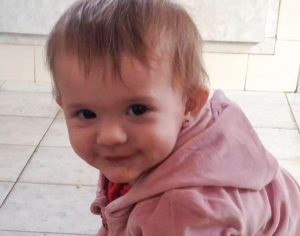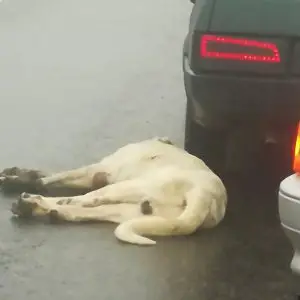Story By: Ana Lacasa, Sub Editor: Joseph Golder, Agency: Central European News
These images show how migrant children forced out of Venezuela by the economic crisis are now searching for food in mountains of rubbish in Colombia.
The heartbreaking images were captured in Puerto Carreno, in the eastern Colombian department of Vichada where around 700 people belonging to the indigenous Amorua people and other communities are living next to a mountain of rubbish.

Local newspaper RCN shared the shocking images of children eating rubbish from the mountain and the report says they have been eating from the waste for over a year.
The local Ombudsman has reported the situation to the authorities but nothing has reportedly been done about it.
According to the report, the children are of Colombian and Venezuelan nationality, some of whom have fled from Venezuela due to the economic crisis in the country. They are said to be living in poor conditions next to the mountain of rubbish where they scavenge for food every day.
The report says the indigenous group also dig in the rubbish to find clothing and metal they can sell to survive.
Prosecutor Fernando Carrillo told local media that they will find out what happened with the food programmes set up in the department and in the municipality. He also announced that measures will be taken.
Marco Perez, the Mayor of Puerto Carreno, said that the food programmes are not enough to cover the needs of the indigenous people because the municipal administration does not have the resources. He added: “A plan for integral attention for this indigenous population was set up, but this plan is a long-term plan. We need to be helped, we do not have money.”
Carlos Negret, the Ombudsman, said that “since 22nd July this year we have let the situation of the Sikuani and Amorua communities be known. Our suggestion is to set up a plan of action as soon as possible, because this cannot be happening with the indigenous community”.
Juliana Pungiluppi, the Director of the Colombian Institute of Family Welfare, said on Twitter that actions will be taken to avoid the situation continues.
She wrote: “We are not going to allow Amorua children to stay in the rubbish area of Puerto Carreno, facing all kinds of risks. I will lead government action so that the minors will have attention and care”.
The Amorua community are located in the Departments of Casanare and Vichada. It is believed that they are around 464 people, according to data from 2005.
They are considered a people close to extinction due to the low population. Local media report that the community is considered under special protection by the Constitutional Court.
The ViralTab page is created by and dedicated to professional, independent freelance journalists. It is a place for us to showcase our work. When our news is sold to our media partners, we will include the link here.



